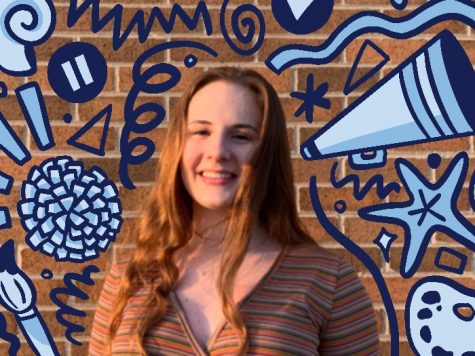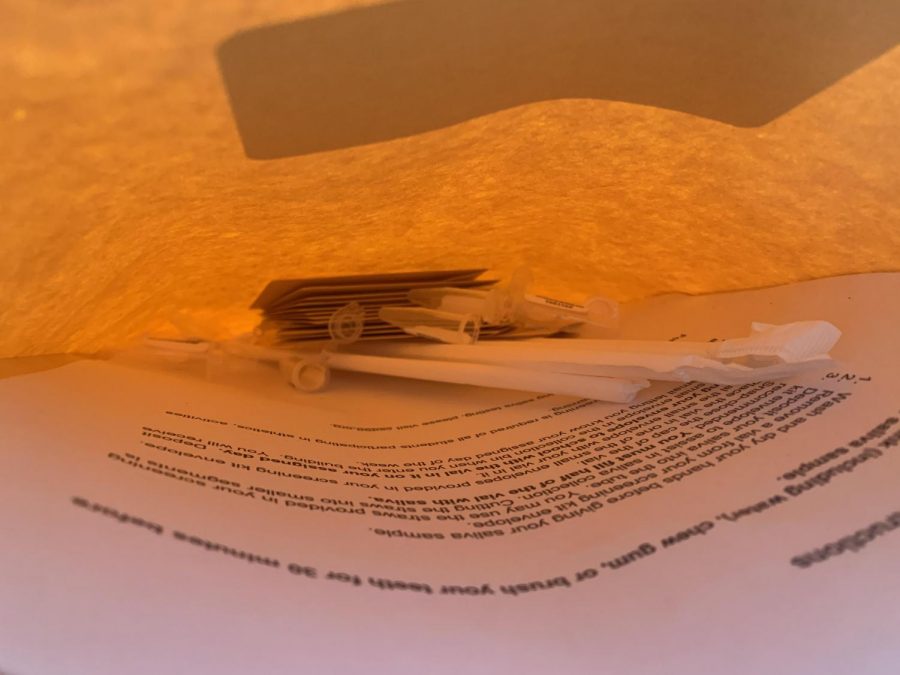District 99 implements mandatory saliva screening for in-person students
All Students will receive a saliva test kit to provide the school with their saliva sample each week.
District 99 is now requiring in-person students to provide saliva samples each week starting Feb. 16 to further ensure students safety from COVID-19.
Students are sent home with a saliva kit with instructions on how to do the test. Each week students will spit into a tube from their saliva test kit and drop it off in a bin as they enter the school building. The school sends the students samples to a lab and will get the results back within 24 hours.
If a student receives results that indicate they could have pre-covid symptoms, the nursing staff will contact the student’s parents. If students receive results that indicate pre-covid symptoms they must get tested for COVID-19 before they can return to in-person learning.
With each student being required to provide a saliva sample, concerns have arisen about students’ personal information being exploited. Principal Edward Schwartz explains how students’ saliva samples have a bar-code, which will keep students’ information anonymous to outside sources.
“The lab only knows the spit by the bar-code so they never know whose [sample belongs to what student]. We have a database here that matches [the samples] up in case something comes back and we have to go back to the student. So it’s all anonymous outside of the building,” Schwartz said.
Now with another requirement for students to enter the building, Schwartz fears that in-person students will switch to remote due to the testing being an inconvenience.
“I am trying to figure out a way to change the trend of more and more people going fully remote. I fear that less kids will come back just because they don’t want to deal with [saliva testing] once a week,” Schwartz said.
While some students will choose to switch to remote learning to avoid the saliva testing, Senior Benjamin Tunney has no problem doing a saliva test every week.
“I don’t mind [saliva testing]. I feel like some people are weirded out by it, but personally I really do not care at all. Whatever the school and health departments think will make learning more safe, I’m on board for,” Tunney said.
Similar to Tunney being on board with the saliva testing, Junior Ashley James is considering switching from remote to in-person learning with the addition of the saliva screening.
“I originally did remote learning because I was very uneasy about returning back to school and was very worried about the virus because of high risk members in my family. However with this mandatory saliva testing it makes me feel more confident in the schools effort to keep students safe. [Now I am] more open to the idea of coming back to school soon,” James said.
Although students like James feel more comfortable switching to in-person learning, students such as Junior Amanda Operana prefer to stay in a remote learning environment.
“I think that the saliva testing is a good idea because it’s a way for the school to access the overall health of the students and be able to take further precaution if needed. However, I don’t think the testing will change my decision to stay remote,” Operna said.
Even though the saliva testing will not change some remote student’s decision to come in-person, Schwartz talks about how he believes the testing will make a safer environment for hybrid students and staff.
“Through this whole thing we are trying to find the safest way to get people back in the building. Whether the [the saliva testing] is necessary can be debated, but I think it adds a level of safety to those in the building,” Schwartz said.
Schwartz continues, elaborating on how he thinks the saliva testing can create new metrics for the school.
“There has been a lot of debate over the last several months about the metrics and whether we should use the community positivity [rate]. Overtime, if the same number of kids are tested each week that will give us a metric that is specific to our building,” Schwartz said.
For more information about the saliva screening starting Feb. 16, visit District 99’s saliva screening FAQ page.


